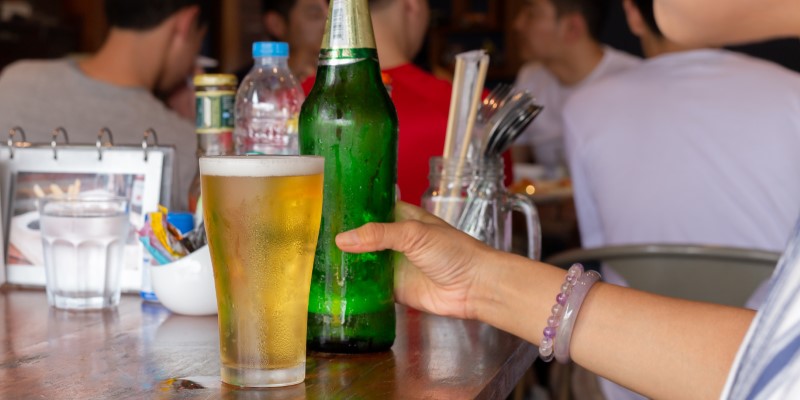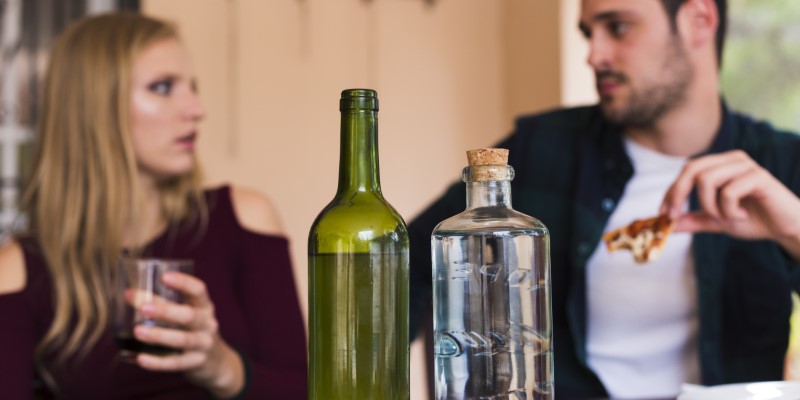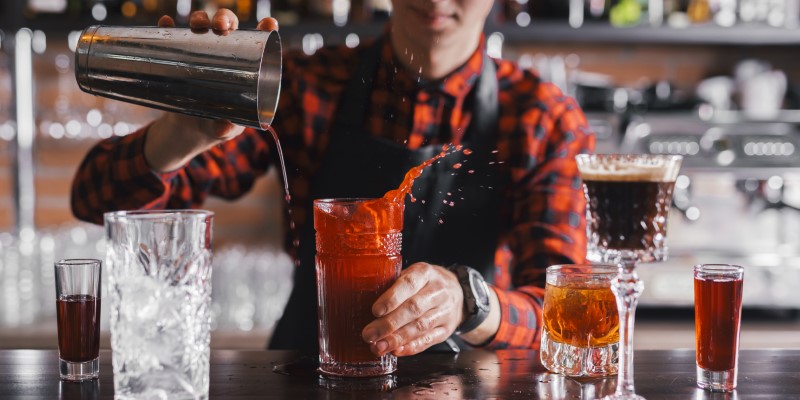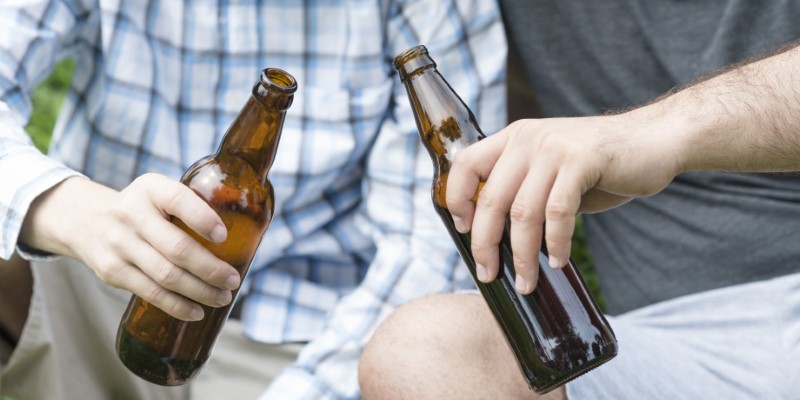What’s Behind The Surge In Popularity Of Non-Alcoholic Spirits?
In recent years, the popularity of non-alcoholic spirits has surged, transforming what was once a niche market into a thriving industry. The days when non-drinkers were limited to sugary sodas or plain water are long gone. Now, sophisticated alternatives to traditional alcoholic beverages are making their mark, offering a refined drinking experience without the alcohol.
This shift in consumer behavior is driven by changing preferences, health consciousness, and a growing cultural movement towards mindful drinking. Understanding what’s behind this surge reveals a broader trend where wellness, innovation, and social influence converge.
Changing Consumer Preferences And Health Consciousness
The growing popularity of non-alcoholic spirits reflects changing consumer preferences, especially among Millennials and Gen Z, who prioritize health, balance, and wellness. With a decline in alcohol consumption, these generations seek flavorful alternatives without alcohol's downsides.
Health concerns like calories, sleep disruption, and long-term risks are key drivers, leading many to reduce or avoid alcohol. Non-alcoholic spirits provide a way to enjoy the social experience of drinking while aligning with healthier lifestyles, offering diverse alcohol-free options that suit modern tastes.

Expanding Demographics And Inclusivity
What’s also noteworthy is the expanding demographic interested in non-alcoholic spirits. It’s no longer just people abstaining for health reasons or during Dry January. Pregnant women, designated drivers, those practicing religious abstinence, and even regular drinkers looking for a break are all finding value in these products. The inclusivity offered by non-alcoholic options allows everyone to be part of the social experience without feeling left out, driving their appeal further.
The Rise Of Mindful Drinking And Wellness Trends
The growing interest in non-alcoholic spirits is also part of a broader cultural movement towards mindful drinking. People are becoming more intentional about their alcohol consumption, focusing on quality over quantity. The idea of mindful drinking emphasizes enjoying beverages without the pressure to consume alcohol, promoting a balanced lifestyle that supports mental and physical well-being.
The rise of non-alcoholic spirits aligns with broader wellness trends emphasizing self-care and holistic health. As activities like yoga, meditation, and healthy eating gain popularity, consumers seek products that support these values. Non-alcoholic options allow for sophisticated drinks while maintaining mindfulness and control, appealing to those prioritizing balanced, health-focused lifestyles.

The Role Of Events And Social Movements
Events like Sober October and Dry January have also played a significant role in normalizing non-alcoholic beverages. These movements encourage people to take a break from alcohol and reflect on their drinking habits. For many, participating in these challenges leads to a permanent shift in how they view alcohol, sparking a long-term interest in non-alcoholic alternatives. As these social movements continue to grow, they reinforce the demand for innovative and appealing alcohol-free options.
Innovation In Non-Alcoholic Beverage Crafting
Innovation is at the heart of the non-alcoholic spirits boom. In the past, alcohol-free drinks were often limited to basic options with unremarkable taste. Today, the landscape is vastly different. Brands are investing in the craftsmanship of their products, using advanced techniques to create complex flavors that mirror traditional spirits. Whether it’s non-alcoholic gin infused with botanicals or a zero-proof whiskey with smoky undertones, these beverages offer a sensory experience that rivals their alcoholic counterparts.

Craftsmanship And Ingredient Quality
High-quality ingredients and meticulous production processes are central to this innovation. Brands like Seedlip, Lyre’s, and Ritual Zero Proof have set new standards by prioritizing natural ingredients, botanicals, and distillation methods that preserve flavor and aroma without relying on alcohol. This approach not only caters to consumers looking for premium products but also positions non-alcoholic spirits as a genuine alternative to traditional spirits, not just a compromise.
Moreover, the versatility of these beverages allows them to be used in a wide range of cocktails, giving bartenders and consumers the freedom to experiment with alcohol-free mixology. Whether at high-end bars or home gatherings, the ability to create sophisticated drinks without alcohol adds to the growing appeal.
Addressing Taste And Experience
One of the key challenges non-alcoholic spirits had to overcome was the perception that alcohol-free meant flavor-free. Through innovation, these brands have addressed that gap. By replicating the complex mouthfeel and burn associated with alcohol, they provide an experience that feels authentic, offering everything from bitter notes to herbaceous layers. The result is a product that stands on its own, appealing to drinkers and non-drinkers alike.
The Impact Of Social Media And Celebrity Endorsements
Social media has played an instrumental role in propelling the popularity of non-alcoholic spirits. Platforms like Instagram, TikTok, and Pinterest are teeming with content showcasing alcohol-free cocktails, healthy lifestyle tips, and vibrant images of sophisticated non-alcoholic beverages. This visual appeal, combined with the ease of sharing trends online, has helped drive awareness and interest in these products.

Influencers And Celebrity Endorsements
Influencers and celebrities have also had a significant impact. When well-known figures advocate for sober living or moderation, it resonates with their followers. Celebrity endorsements lend credibility and trendiness to non-alcoholic brands, making them more attractive to a wider audience. Celebrities like Blake Lively and Chrissy Teigen, who have launched or supported non-alcoholic beverage lines, highlight how these drinks can be integrated into a glamorous and socially active lifestyle without compromising health.
Building Community And Lifestyle Branding
The communities forming around sober-curious and mindful drinking lifestyles have further fueled the non-alcoholic trend. Online groups, events, and forums provide spaces for people to share their experiences, exchange tips, and explore new products. This sense of community strengthens the movement and drives collective interest in non-alcoholic spirits. As these communities grow, so does the influence of the alcohol-free lifestyle, pushing brands to continue innovating and refining their offerings.

Conclusion
The surge in popularity of non-alcoholic spirits is more than just a passing trend; it reflects a broader cultural shift towards health, mindfulness, and inclusivity. As consumers become more conscious of their health and lifestyle choices, the demand for sophisticated, alcohol-free alternatives is expected to continue growing.
From changes in consumer preferences and the rise of wellness trends to innovative beverage crafting and the power of social media, the non-alcoholic spirits industry is poised for sustained success. In a world where mindful consumption is increasingly valued, non-alcoholic spirits are carving out a permanent place in the market, offering consumers new ways to enjoy the ritual of drinking without the drawbacks of alcohol.